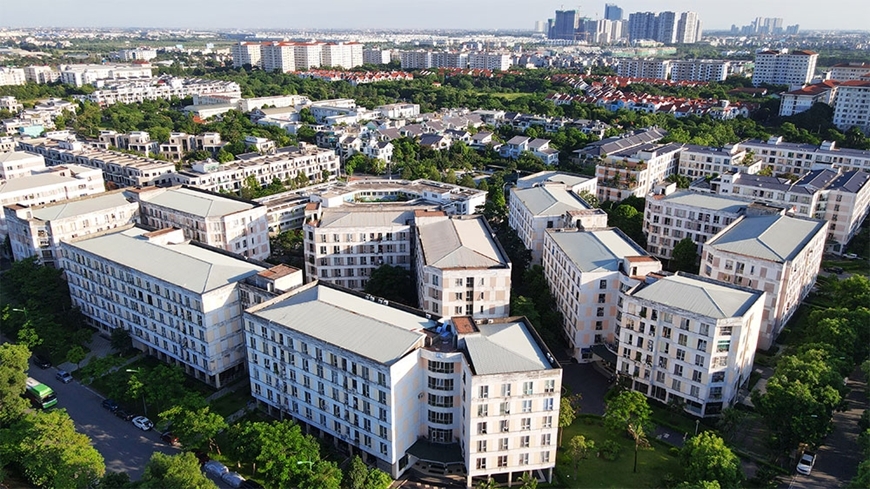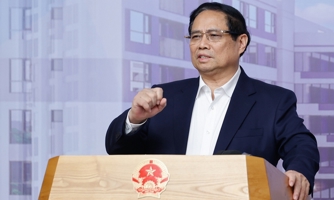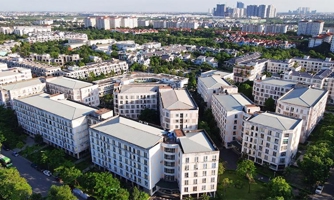The Ministry of Construction (MoC) is currently seeking public feedback on
a draft Submission Report and a draft Decree on a National Housing Fund. The purpose
of drafting and issuing the Decree is to cement the provisions of National Assembly
(NA) Resolution No. 201/2025/QH15, which pilots several specific mechanisms and
policies for the development of social housing. The NA has assigned the government
to develop detailed regulations to act as a legal basis for implementation.
The Fund is intended to invest in the construction and operation of social
housing for rental purposes, including independent projects or those integrated
with technical and social infrastructure. It will also facilitate the establishment
and management of social housing through the reception and functional conversion
of public assets currently managed by central agencies in accordance with housing
laws, as well as assets handed over by local authorities for lease. Additionally,
the Fund may purchase social housing units developed by private investors for rental
purposes.
It will support the acquisition and management of commercial housing for lease
to civil servants, public employees, and workers at State agencies, political and
socio-political organizations, and public service units.
New fund model
The National Housing Fund is proposed as an off-budget State financial fund,
operating under a 100 per cent State-owned enterprise (SOE) model. It will have
legal status, be allocated funding from the State budget, and be allowed to open
accounts at the State Treasury and legally-operating commercial banks in Vietnam.
The Fund will operate publicly, transparently, and on a non-profit basis, and will
bear limited liability within its equity and be subject to inspection and audit
by State financial authorities. Investment procedures for housing projects financed
by the Fund are to follow public investment regulations.
Under the draft, the government will also establish the Central Housing Fund,
managed by the MoC. At the local level, Provincial People’s Committees will establish
Local Housing Funds under their ownership and delegate management to relevant agencies.
The Central Fund’s capital will come from State funding, voluntary contributions
from domestic and international organizations and individuals, and other legal sources.
It will receive an initial charter capital of at least VND5 trillion ($192.3 million)
from the central budget upon establishment, increasing to a minimum of VND10 trillion
($384.6 million) within three years.
According to the MoC, this proposal aligns with Directive No. 34-CT/TW, issued
by the Party Secretariat, which calls for stronger leadership in social housing
development. The Directive emphasizes mobilizing diverse financial sources and forming
long-term, sustainable mechanisms, such as dedicated funds or financial institutions,
to build at least 1 million social housing units for low-income earners and industrial
park workers.
This is in line with Decision No. 338/QD-TTg, issued by the Prime Minister
in April 2023, approving a plan to develop at least 1 million social housing units
nationwide by 2030.
In line with NA Resolution No. 201, the National Housing Fund will prioritize
investment in rental housing for low-income groups, civil servants, and workers.
The estimated cost to build one 60 sq m rental unit is around VND1 billion ($38,460).
From 2026 to 2030, around 10,000 rental units are expected to be developed under
the Fund.
For Local Housing Funds, operating capital will also come from State budget
allocations, voluntary contributions, land value equivalents from infrastructure-ready
land provided for social housing obligations, proceeds from public housing sales,
land use right auctions, and income from fund operations. Provincial People’s Committees
will set the contribution rate into these funds based on local regulations.
Powering social housing
Within the draft, the MoC outlines proposed regulations on the National
Housing Fund’s investment and housing development activities. The Fund may invest
in standalone social housing projects with a maximum duration of five years, or
in integrated social housing developments with supporting technical and social infrastructure,
with a duration of up to seven years.
The Fund may also directly repair and renovate public housing assets it receives
and repurposes in accordance with housing laws. It can purchase social housing from
project developers for rental purposes through procurement or negotiated contracts.
Additionally, the Fund may acquire commercial housing on the open market to lease
to civil servants, public employees, and workers in State agencies and public service
units.
Before any purchase, the Fund must prepare a housing acquisition project. Investment
approval is granted by the Minister of Construction or the Chairperson of the Provincial
People’s Committee. Project documents must specify the location, type, and number
of units, size, purchase price, related costs, funding sources, payment method,
responsible agencies, and implementation timeline.
The purchase price is determined by the investment decision-maker, based on
the developer’s asking price, market comparisons, and certified valuations. Rental
pricing will follow existing rules for State-funded social housing. The leasing
process will also align with current public housing regulations.
The Fund may establish its own management units or contract qualified third
parties to operate the housing. If outsourced, contractor selection must go through
a public bidding process under procurement laws.
According to the MoC, the establishment of the National Housing Fund will generate
long-term, sustainable resources for housing development, accelerate the delivery
of affordable housing for low-income groups, and support the national goal of building
at least 1 million social housing units by 2030. It will also help balance housing
supply and demand, adjust the real estate product mix, lower commercial housing
prices, and contribute to a more stable and healthy property market.












![[Interactive]: Toàn cảnh kinh tế Việt Nam tháng 8/2025](https://premedia.vneconomy.vn/files/uploads/2025/09/06/313418e027db4b97adaba4c542e2f904-10696.png?w=700&h=420&mode=crop)

